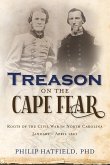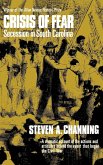In March 1933, in one of his first acts as president, Franklin Delano Roosevelt declared a bank holiday throughout the United States. Considered by many to be a bold step to curb the mounting bank crisis, the decree closed banks in all 48 states and overseas territories, putting money out of reach of citizens, businesses and all levels of government. This narrative history recounts and explains the economic, financial and political backgrounds of the banking panic, arguing that the holiday was not only unnecessary but actually damaging to the economy. The holiday did, however, provide Roosevelt with the momentum to push through a series of historic reforms that remade the federal government. This revisionist work not only reveals the circumstances around the panic but debunks numerous myths that have clung to it ever since.








